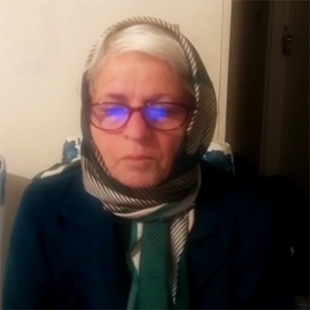Ovarian cancer is the abnormal growth of cells in the ovaries, which are an important part of the female reproductive system. Ovaries are two small glands, located on either side of the uterus. They help produce female sex hormones and store or release eggs. An ovarian tumor is it is the eighth most common type of cancer among women. It is the fifth most common cause of cancer deaths in women around the world. Ovarian cancer can be life-threatening if not diagnosed and treated on time, however, the chances of survival are great in the case of early diagnosis.
Ovarian cancer forms when normal ovarian cell growth fails, and there is an uncontrolled growth of cells. Most of the ovarian cancers arise from the lining cells (epithelium) of the ovary. The ovarian tumor can metastasize and spread to other organs of the body.
Ovarian Cancer Causes: There is no identified and known cause of ovarian cancer. However, there are some risk factors associated with the disease. Family history (genetics) of ovarian cancer, older age, breast cancer, obesity, and endometriosis are some of the known ovarian cancer risk factors. Other than these, menstrual cycles play a major role in ovarian cancer. The higher the number of total lifetime ovulations, the greater the risk of ovarian cancer. That is, women who have had their periods before the age of 12 are at an increased risk of ovarian cancer.
The risk of ovarian cancer is also high in women suffering from familial melanoma, which is characterized by the presence of certain genes. These genes are inherited from parents and mostly occur when two or more relatives suffer from the aggressive form of melanoma or skin cancer.
The kind of ovarian cancer you have depends on where the cancer starts in the body. There are three main types:
Following are the symptoms of Ovarian Cancer:
Diagnosing ovarian cancer involves several tests and procedures:
Depending on the type, stage, grade of ovarian cancer, and general health of the patient, the oncologist will devise the best treatment plan for the patient. However, a patient’s expectations and desires play a major role in selecting the treatment plan. For example, some patients may desire childbirth in the future, while others could be okay with having their uterus. the Fallopian tubes and ovaries removed.
Surgery: Surgery is often the first and the best treatment for ovarian cancer. Surgical removal of the cancer is done in a vast majority of ovarian cancer patients. The type of surgery opted for depends upon how widespread the cancer is when it is diagnosed.
There are different surgical procedures to get rid of ovarian cancer, such as unilateral oophorectomy (removal of one ovary) or bilateral oophorectomy (removal of both ovaries), salpingectomy (removal of Fallopian tubes), hysterectomy (removal of the uterus), and omentectomy (removal of momentum).
Typically, the organ in question is fully removed in all these procedures. In some of the advanced cancers, complete removal of the cancer cells is not possible. In such cases, the possible amount of tumor is removed in a procedure called debulking surgery.
Chemotherapy: Chemotherapy drugs interfere with the cell division process and damage the DNA of the cancer cells to reduce their number and stop them from growing any further. Patients will often benefit greatly from its use in the case of ovarian cancer because ovarian cancer patients can tolerate it better because of fewer chemotherapy side effects.
In the case of ovarian cancer treatment, chemotherapy drugs can be given into the vein intravenously (IV) or placed directly into the abdomen (IP).
In some cases, chemotherapy may be performed first, followed by surgery. This is called neoadjuvant chemotherapy. Common chemotherapy drugs used to treat ovarian cancer include paclitaxel, cisplatin, topotecan, doxorubicin, epirubicin, and gemcitabine.
Drugs used in chemotherapy travel throughout the body and can also kill a few normal cells in the body, leading to unpleasant side effects. So, chemotherapy should be followed only if the patient can cope with it. Chemotherapy can cause anemia and leucopenia, besides vomiting, diarrhea, appetite loss, hair loss, and fatigue.
Radiation therapy: Radiation therapy uses high-energy X-rays or proton beams to destroy the tumors of ovarian cancer. This can be given as palliative therapy, or as adjuvant therapy combined with surgery or chemotherapy. However, radiation therapy alone does not improve the survival rate in people with well-differentiated cancers. Common side effects of radiotherapy treatment are diarrhea, constipation, and frequent urination.
Hormone therapy: Although estrogen alone does not have any effect on cancer, cutting off a supply of estrogen slows the growth of cancer cells. Hormone therapy can prevent estrogen from reaching the cancer cells, thus suppressing the growth of cancer.
Targeted drug therapy: Newer medications are being developed that can target cancer cells directly, but till now this treatment only helps reduce damage to the normal cells and subsidizes the side effects of chemotherapy.
The journey of recovery following ovarian cancer treatment can be both physically and emotionally challenging, particularly for those who have undergone a complete removal of ovaries and uterus. The abrupt onset of menopause can bring about various side effects, and adapting to life after ovarian cancer treatment may pose difficulties.
For individuals who have undergone surgery as part of their treatment plan, resuming activities such as driving after a month is generally feasible, but it is crucial to consult with the doctor at each stage before making any significant decisions.
Some women may experience challenges in focusing on daily tasks post-treatment. The impact of multiple cycles of chemotherapy and radiotherapy can contribute to a slower recovery. Adequate fluid intake becomes essential to aid in the recovery process and minimize the side effects of these treatments. Additionally, maintaining a well-balanced diet is equally crucial during the recovery period. Seeking guidance from healthcare professionals and adopting a holistic approach can help women navigate the recovery journey with greater ease and resilience.

Iran
Patient Testimonial: Silim Shabani for Ovarian Cancer Treatment in Turkey Read Full Story

Tel Aviv, Israel
Assuta Medical Center is a leading private hospital in the capital city of Tel Aviv in Israel. Assut...more
![]() Accommodation
Accommodation
![]() Airport Transfer
Airport Transfer
![]() Choice of Meals
Choice of Meals
![]() Interpreter
Interpreter

Kuala Lumpur, Malaysia
History Parkway Pantai Hospital in Kuala Lumpur, Malaysia is operating under the Parkway Pantai gro...more
![]() Accommodation
Accommodation
![]() Airport Transfer
Airport Transfer
![]() Choice of Meals
Choice of Meals
![]() Interpreter
Interpreter

Delhi, India
Equipped with more than 50 specialty institutes, Indraprastha Apollo was started with the vision of ...more
![]() Private Rooms
Private Rooms
![]() Translator
Translator
![]() Nursery / Nanny Services
Nursery / Nanny Services
![]() Airport Pick up
Airport Pick up

Surgical Oncologist
Delhi, India
15 of experience
USD 45 for video consultation

Medical Oncologist
Gurgaon, India
18 Years of experience
USD 48 for video consultation

Oncologist
Delhi, India
19 Years of experience
USD 48 for video consultation

Surgical Oncologist
Delhi, India
20 of experience
USD 32 for video consultation
Q: Is ovarian cancer completely treatable?
It is possible to cure ovarian cancer only when it is diagnosed in its early stages. Unfortunately, a majority of cases are diagnosed at a later stage.
Q: Can you survive ovarian cancer?
A: Women who are diagnosed with ovarian cancer at an age younger than 65 have better survival rates than women aged above 65. The 5-year survival rate associated with Stage 1 ovarian cancer is around 92 percent. However, cancer is rarely detected at this stage.
Q: Is chemotherapy effective for ovarian cancer?
A: Chemotherapy drug carboplatin is considered highly effective against epithelial ovarian cancers. Additionally, it has minimal side effects. Typically, three to six cycles of chemotherapy are considered effective against epithelial ovarian cancer.
Q: Who is at risk of ovarian cancer?
A: Menopausal women aged 63 and above are more likely to develop ovarian cancer. For some women, the risk of ovarian cancer runs in the family. Obesity is another risk factor for ovarian cancer.
Q: Can you prevent ovarian cancer?
A: While there is no definite way to prevent ovarian cancer, research suggests that taking birth control pills for three or more years can reduce the risk of developing ovarian cancer by 30 to 50 percent.